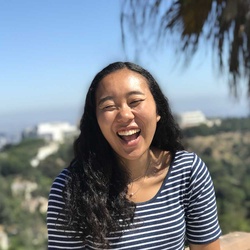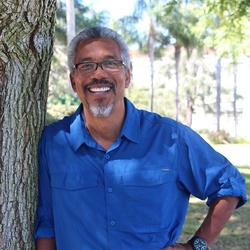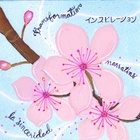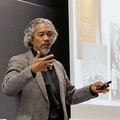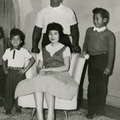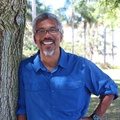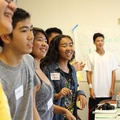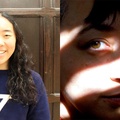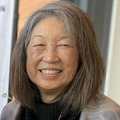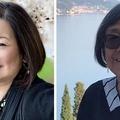2020年を締めくくり、この年が挑戦と反省と団結の時であったことを認識し、今月の特集で力強く美しい音で締めくくれることを嬉しく思います。マリコ・フジモト・ルークスによるニッケイ・アンカバードを再びお届けできることを嬉しく思います。今回はマリコと彼女の父、カーティス・タカダ・ルークス博士を特集します(カーティス博士はこの詩のコラムに初めて登場しますが、ディスカバー・ニッケイではおなじみの人物です)。ディスカバー・ニッケイのサイトでお二人のエッセイをぜひチェックしてください。でもまずは、このコラボレーション作品、世代を超えた思索と詩の織り成す作品、そして今シーズンの私たちに贈る創造的な贈り物に耳を傾けてください…お楽しみください!
— トレイシー・カトウ・キリヤマ
* * * * *
マリコ・フジモト・ルークスはイェール大学の4年生で、科学、医学、公衆衛生の歴史と民族、人種、移住のダブルメジャーを取得しており、さらにイェール大学公衆衛生大学院のBA/MPH複合プログラムに在籍しています。イェール大学では、イェール大学のアジア系アメリカ人スポークンワードグループJookSongsに曲を書いており、オールアメリカンに2度ノミネートされた水球選手でもあります。マリコは全米水球多様性と包摂タスクフォースのメンバーでもあり、次期JACL東部地区評議会青年代表に就任します。また、womxnとノンバイナリーのBIPOCの女性と女性たちによって、そしてwomxnのために作られた文芸誌兼アートプラットフォームであるChanging Womxn Collectiveのアートとインターセクショナリティのリーダーでもあります。カリフォルニア州カルバーシティで育ったマリコは、Kizuna、洗心仏教寺院、LABCCのキャンプモーニングスターなど、日系アメリカ人コミュニティ機関の長年の会員でもあります。
カーティス・タカダ・ルークス博士は、ロヨラ・メリーマウント大学のアジア太平洋系アメリカ人研究プログラムコーディネーター兼准教授で、民族的・多民族的コミュニティとアイデンティティーを研究しています。日本財団/JANMグローバル日系ヤングアダルト研究プロジェクト(2020年)の主任研究員でもあり、全米日協会理事会、南カリフォルニア日米協会理事会の委員を務め、ウエストロサンゼルス日系アメリカ人合同メソジスト教会と洗心寺成人仏教協会(SABA)の会員でもあります。
私は疑問に思う
御殿場といえば、私の(祖母)母のトタン屋根に降る雨の音がいつも聞こえるでしょう。
港と港の間の空間
水には記憶があると言われています
しかし、子供は海岸について不思議に思います。
朝霧で目覚めたのだろうか
壊れた外壁や継ぎはぎの屋根から滑り落ち、
もし彼女が英語の重みを舌の上で感じたなら、それは年月と海のように重くのしかかる。
宣教師の教師たちは曲がり始めた
彼女はLとRの間のスペースを歯で噛み締めます。孫は彼女に、神様に尋ねたいのです。
プールで火が黄色い肌と若者を煮た後、
あなたはどんな祈りを口にしましたか?
2年後、潮は藻で覆われた男たちを吐き出す
そして女性執事の四男
皮付きでチョコレートバーのガイメンチャ色
紙の家の灰を掘り出す任務を負っている
顔や歩道から。
ウィルミントンと横浜
午後の日差しの中で洗濯物干しロープでつながれた
どの家族も急いで家に帰り、市場で買った残り物で食事を作ります。
息子は、物を元通りにすることに慣れていたのだろうかと疑問に思う
人生と戦争が故郷のように響く場所で。
木の切り株と庭の土の溝に、
あなたと同じ世界を見たことがありますか?
混雑した部屋の中で二人の人が視線を合わせるとよく言われますが、
しかし、家族は棘にもっと興味を持っています。
その頂上には、同年代の人よりも頭一つ背の高い若い女性が立っています。
もう一人は、海の通過に耐えられるように、きつくカールした髪に喜びを詰め込んでいました。
両方、
軽蔑や嘲笑に直面してもまっすぐに立ち、
お互いの笑顔のチャンスを曲がって
愛(革命)
困難を希望に再び刻み込む、
椎骨ごとに。
ベトコン兵士が振り返って逃げる
妻の斜め顔のイメージから
夫の額にピストルの銃身に刻まれた刻印。
その瞬間に彼は家に帰ることができ、
慈悲は鋭いカンザス草の緑の香りである。
彼が再びドアから出て行くとき、ブーツの下で壊れるのですか?
彼らが意味しているのは
アメリカのチャンス?
50年後、孫娘の姿をした子供が新幹線に乗って、
「次の停車駅は横浜です」
そして弾丸が記憶するということの意味を知っています。
彼らの反響は疑問を投げかけます。
もしあなたの愛が私の頬に当たるつぎはぎの毛布の毛足以上のものじゃなかったらどうするの?
あなたのタッチ、ダークグリーンのカムリの滑らかなベルベットのシート
あなたの声、空気がアーチを描いて、父の後ろの玄関ドアを閉めた
息を吐く前に半分思い出した日本語のように沈黙の中に漂う
彼はあなたを探すために別の飛行機に乗り込みます。
海を越えて飛び立つ父親は、銃弾では叶わない夢について思いを巡らす
忘れる。
初めて孫を抱いたとき、彼女はどんな夢を見たのだろうか。
それを分かち合うには早すぎる死を遂げた父のことを思うと不思議に思う。
寒い12月の日に、孫娘が思い出を綴っています。
- セーターの袖から垂れ下がった私たちの長すぎる腕が、あなたの息子たちが笑うときの斜視の目に押し付けられる
- 電気水に浮かぶ叔父の入れ歯
あなたの病室の青緑色の壁の色です - 私は黒い靴を履いて、開いた棺の口の上につま先立ちしている
「もう閉めていいよ。寝る時間だから」 - あなたの子供たちと孫たちは、家に帰る道に迷っています。
*この詩の著作権はマリコ・フジモト・ルークスとカーティス・タカダ・ルークスが所有しています(2020年)
© 2020 Mariko Fujimoto Rooks & Curtiss Takada Rooks




